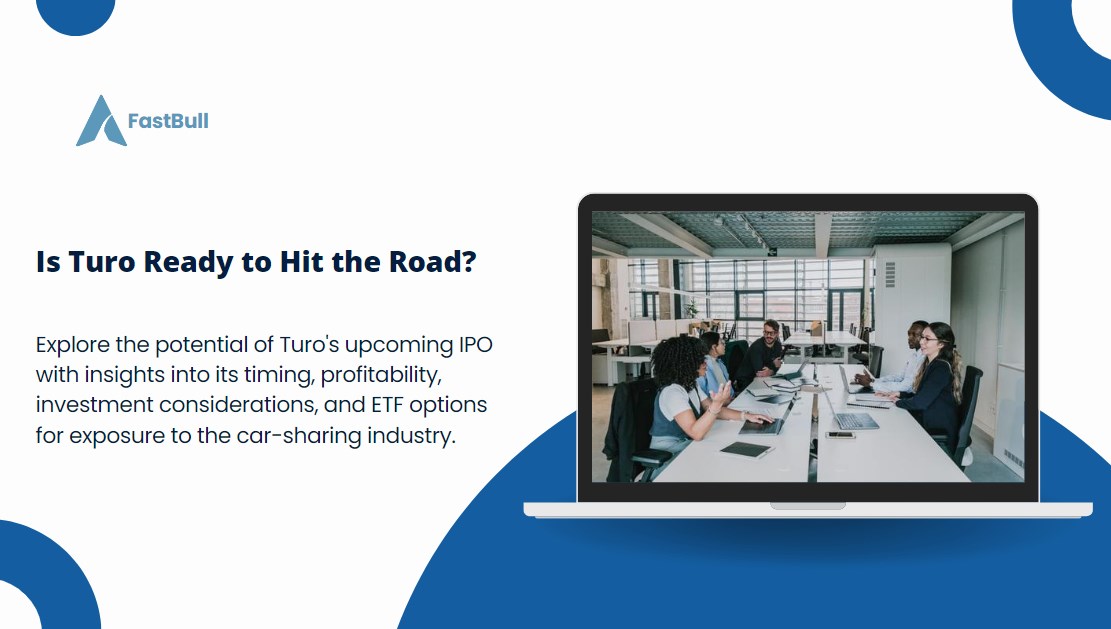- Brokers
- Scam
- BV Assessment NEW
- Rankings
- Regulators
- News
- Claims
- Expo HOT
- Event
- Awards HOT
 Download
Download
Turo IPO - Is Turo Ready to Hit the Road

Can Turo Be Publicly Traded?
Turo, the car-sharing service, has yet to go public but has indicated its intentions through repeated updates to its S-1 forms, a prerequisite for an initial public offering (IPO). The company's IPO has been delayed due to various factors, including a challenging IPO market and slowing growth.
When will Turo IPO?
The timing of Turo's IPO remains uncertain. The company has amended its S-1 form multiple times since its initial filing in January 2022, indicating a cautious approach to timing its public debut. With the IPO market showing some signs of improvement, Turo may consider launching its IPO later in the year.
How to Buy Turo?
Since Turo is not yet publicly traded, it's not possible for individual investors to buy its stock. However, investors can consider similar stocks in the market, such as Avis Budget Group, Airbnb, and Uber, to gain exposure to the car rental and sharing industry.
Is Turo Profitable?
Turo's financials show a mixed picture. While the company reported net income of $154.7 million in 2022, its profitability declined in 2023, with net income dropping to $15.6 million. The company's expenses have been on the rise, impacting its profitability despite revenue growth.
Should I Invest Turo?
Investing in Turo requires careful consideration of various factors. While the company operates in a promising industry with potential for growth, challenges such as regulatory issues and competition could impact its future performance. Investors should assess their risk tolerance and investment goals before considering Turo as an investment opportunity.
ETF options
Since Turo is not publicly traded, there are no ETFs that offer direct exposure to the company. However, investors interested in the transportation and tech sectors can consider ETFs such as iShares US Transportation ETF (IYT), SPDR S&P 500 ETF Trust (SPY), and SPDR S&P Transportation ETF (XTN) for diversified exposure.
Regulatory Environment
Turo operates in a regulatory environment that is still evolving. The company has faced challenges in some markets where regulators have raised concerns about safety, insurance coverage, and taxation related to its business model. Changes in regulations could impact Turo's operations and financial performance.
Competition
Turo faces competition from both traditional car rental companies and other peer-to-peer car-sharing platforms. Competitors may have greater financial resources, brand recognition, and regulatory compliance, which could affect Turo's market share and profitability.
Market Trends
The car rental and sharing industry is subject to changing market trends, including shifts in consumer preferences, technological advancements, and economic conditions. Turo's ability to adapt to these trends and capitalize on new opportunities will be key to its long-term success.
Technology and Innovation
As a tech-driven platform, Turo relies on continuous innovation to enhance its user experience, improve operational efficiency, and stay ahead of competitors. Investments in technology and R&D will be critical for Turo to remain competitive in the market.
Global Expansion
Turo has expanded its services to several international markets, including Canada, the United Kingdom, and France. Further global expansion could provide growth opportunities but also entails risks related to regulatory compliance, market acceptance, and cultural differences.
Consumer Behavior
Changes in consumer behavior, such as increasing preference for shared mobility solutions and sustainable transportation options, could benefit Turo's business. Understanding and responding to these trends will be essential for Turo to attract and retain customers.
Economic Conditions
Turo's business is influenced by economic conditions, including travel trends, disposable income levels, and overall consumer spending. Economic downturns or disruptions, such as the COVID-19 pandemic, can have a significant impact on Turo's financial performance.
Environmental and Social Impact
As a car-sharing platform, Turo has the potential to reduce the environmental impact of transportation by promoting shared vehicle usage. The company's commitment to sustainability and corporate social responsibility could appeal to environmentally conscious consumers and investors.
FAQ
Is Turo publicly traded?
No, Turo is not publicly traded. The company has indicated its intentions to go public but has yet to announce a date for its IPO.
When will Turo IPO?
The timing of Turo's IPO remains uncertain, as the company continues to assess market conditions and regulatory requirements.
How can I buy Turo stock?
Since Turo is not publicly traded, individual investors cannot buy its stock directly. Investors can consider alternative investments in the transportation and tech sectors.
Is Turo profitable?
Turo reported profitability in 2022 but saw a decline in profitability in 2023. The company's financial performance is subject to various factors, including market conditions and operational expenses.
Should I invest in Turo?
Investing in Turo requires careful consideration of various factors, including the company's financial performance, industry outlook, and competitive landscape. Investors should conduct thorough research and consult with financial advisors before making investment decisions.
Conclusion
While Turo presents an intriguing investment opportunity in the car-sharing and rental industry, potential investors should conduct thorough due diligence and consider the various factors that could impact the company's future performance. Turo's IPO, if and when it occurs, will be a significant milestone for the company and the market, providing further insights into its growth prospects and market valuation.










